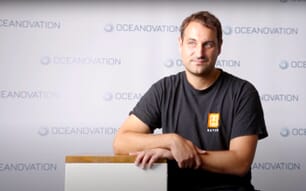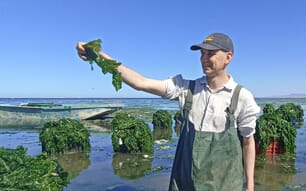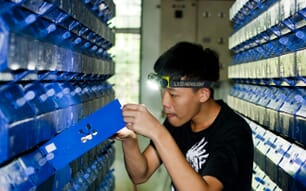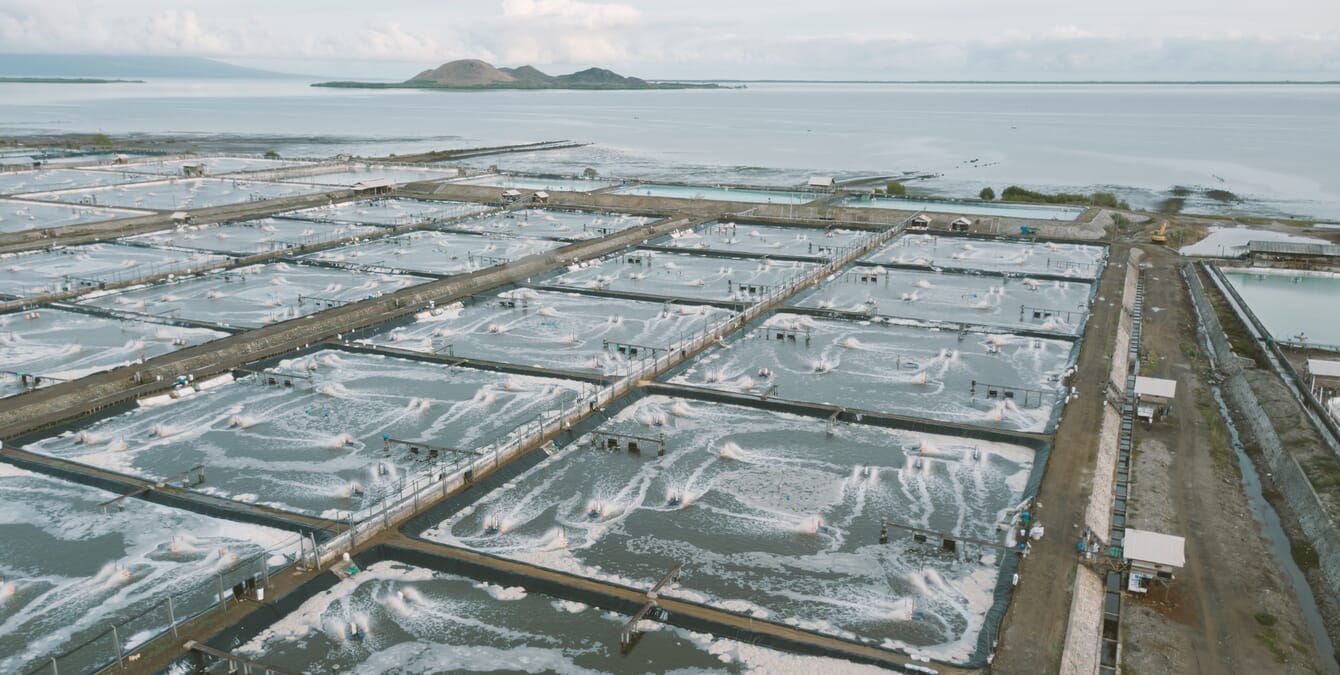
© Delta Marine Group
For Darmawan, 2023 has been a year to celebrate, and insights from the latest cycle indicate that his farms’ production records are set to be broken again, following a record-breaking harvest for the last cycle.
“It’s actually looking like we're going to break that [production] record again. Right now we’ve almost reached 90 days with our current cycle and all our ponds are still going strong – we haven’t had to stop the cycle or do an emergency harvest due to problems. So we're expecting a record harvest once again,” he exclaims.
Probed as to what the magic ingredient was that enabled Delta Marine to keep hitting these record harvests in a challenging year for the Asian shrimp industry, Darmawan shared the company’s strategy: trial and error with different products and with a mixture of heterotrophic and autotrophic systems.
“Basically last cycle we tried both and we’ve been working closely with [DSM-Firmenich] actually. So we have one of their members help us on analysing and coming up with the system, tweaking it bit-by-bit – I think that's one of the key reason why we got such a good harvest and such a good production,” he explains.
The numbers certainly suggest this strategy is working: “Last cycle we hit on around 28 tonnes per hectare on a 20 hectare site, and this cycle we're expecting to hit 30 or above,” shares Darmawan. “This is an average of all the bad ponds and the good ponds – luckily this cycle we have a lot more good ponds than the bad ones!”
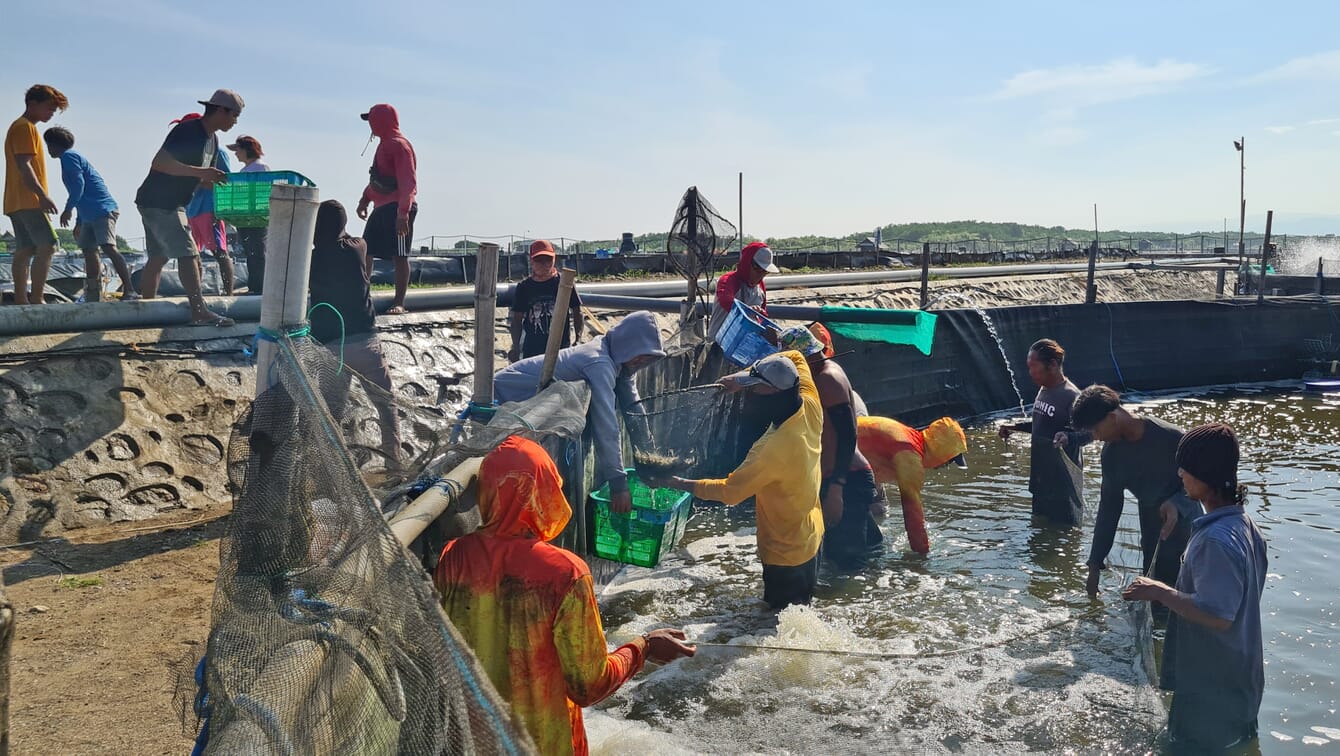
Delta Marine have hit record-breaking harvests this year, which Darmawan puts down to trial and error with different products and with a mixture of heterotrophic and autotrophic systems © Delta Marine Group
Price wars
However, Darmawan is acutely aware of the biggest challenge currently facing Indonesian shrimp farmers: low prices. “It's not just going to come from me, but a lot of the farmers that I've been talking to,” he explains. “A lot of people are complaining about price – why it's so low? When will it recover?”
And the impact is evident, with Darmawan witnessing fellow shrimp farmers putting expansion projects on hold, due to the downward trajectory of shrimp prices, or fully stopping production due to loss of earnings. He explains that some farmers are on a “wait and see period – they want to see if things go well and then they can start stocking again. But if not, then they're looking for other opportunities.”
He continues: “What I'm afraid of – and probably a lot of the farmers are afraid of – is a further decrease in the price. If prices go down even more it will go to levels that it’s not worth it anymore. It's a shame because [for] a lot of people their livelihood depends on the industry. It’s not just the owners, but also the workers inside. So if that happens, a lot of people are going to be out of job.”
2023 has seen some of the lowest prices for Indonesian shrimp, but Darmawan notes that the price has been gradually coming down over the past few years, exacerbated by an increase in world shrimp production.
In contrast to global trends, Darmawan believes the Indonesian shrimp industry is actually shrinking, with a lot of the markets closing down. “The global economy is just not in a good state – or as good as before – so a lot of people are cutting spending or maybe trying new proteins. That affects a lot, especially as shrimp [is seen as] a luxury item,” he says.
For an established business like Delta Marine the low shrimp prices have had less of an impact than on smaller, less efficient operations. “When the price is like it is right now, we're still making a profit. If you're good at producing, you're still actually making quite a good margin. It's just that the risk is suddenly bigger than the reward.”
He adds: “For us, we are expanding and we think that there's still opportunity in this sector because we’re operating at a lower risk. So I think we can tolerate this [low] price [period].”
Darmawan is aware of some people holding off investing in shrimp farming because of the uncertain market. “Right now if you build a new farm you will break even in five years. Previously you can get that in two or three years. So it's a longer payback period. And you don't know in two or three years if the industry is still okay, so they don't want to take that risk,” he explains.
US market
Adding to the challenge of low prices, the Indonesian shrimp industry has been subject to external pressure from vested interests in the US, Indonesia’s main market, and are at risk of facing higher tariffs – following claims that the Indonesian government is subsidising shrimp farms.
“There’s an association in the US that is trying to say that we're dumping the shrimp because the price is so low. They say we've got subsidies, which isn’t true,” Darmawan explains. “We’re not getting any subsidies. We're not getting any help from the government. It's a misplaced case, which we are trying to figure out how to fight. But if the US puts more tariffs into the trade, then the price would go even lower and that will be bad for Indonesia.”
Darmawan elaborates that, although the Indonesian government established some financial support programmes, shrimp farmers have not been able to access any of the funding.
What this situation has highlighted is Indonesia’s reliance on the US market, something Darmawan hears young Indonesian farmers lamenting. Although farmers discuss amongst themselves the wider markets of Europe, the Middle East and China, Darmawan knows there’s only so much they can do. “The thing is we are farmers, we are not the packers, so we are not in that supply chain, therefore we don't have as much control.”
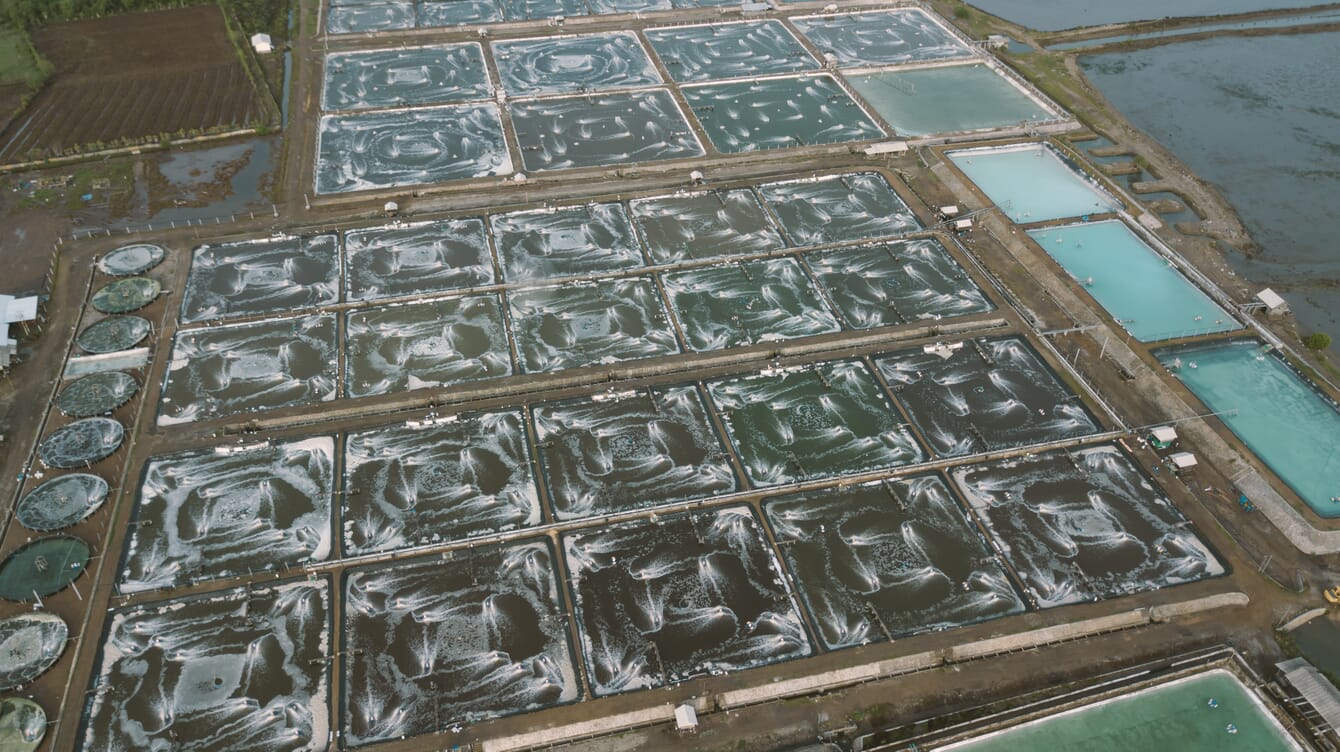
© Delta Marine Group
Looking ahead
Heading into 2024 Delta Marine has plenty of expansion plans, confirming Darmawan’s belief in the industry. The company plans to open two more sites in 2024 and a further two the following year, which would bring the group’s total number of sites to seven.
Along with expansion plans, sustainability objectives are also on the agenda, with Darmawan in the throes of an experimental project to install solar panels on bespoke roofs covering raceways at the company’s farms.
“Right now we are talking to a solar panel company to install solar panels in our farms to help with a percentage of our operations to be powered with the solar panels,” he explains. “I think we're going to be one of the first [farms to do this] in Indonesia, or at least in our region.”
Initially the solar panels will be installed on a small trial pond that’s due to be built in 2024, but Darmawan hopes to install solar panels across all the farm sites, potentially saving 5 percent of the company’s energy costs.
“We want to test if the raceway ponds, that are thin and not that wide, can have roofing put on top of them and then put the solar panels on top. We're hoping that this can be a model of a new farm where all of the ponds will have solar panels on top of them – it can then be something to produce shrimp, but also to supply the grid with electricity.”
Diversifying operations
Installing solar panels is not the most radical move on Delta Marine’s horizons, as the company plans to explore multi-trophic farming – a direct result of the uncertain future of the Indonesian shrimp industry.
“I guess in a way we are trying to diversify our operation. Right now we're doing shrimp, but we are trying to learn or develop some polyculture system where in the shrimp ponds we also grow fish and algae,” he says, acknowledging the economic value of these species and the need for a secondary source of income rather than only relying on shrimp.
He continues: “In the shrimp ponds there’s a lot of nutrients that are wasted and are just being thrown into the environment. So it’s like killing two birds with one stone – we’re trying to absorb this nutrition to be beneficial and to produce something else, and also we're going to pump less waste into the environment. So it works two ways.”
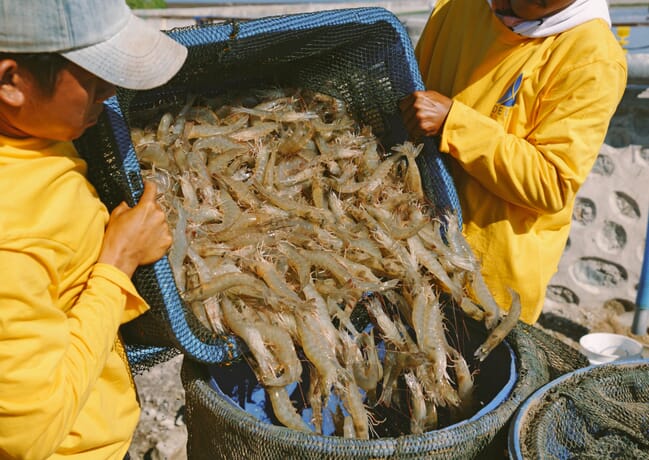
Due to the uncertain future of the Indonesian shrimp industry, Darmawan plans to explore multi-trophic farming by experimenting with growing fish and high value algae in some shrimp ponds © Delta Marine Group
Having got the green light from his family – the Delta Marine Group is a family-owned business – to branch into farming fish and algae, Darmawan has started stocking milkfish in some shrimp ponds and plans to start farming a high value algae species, such as caulerpa or ulva. He hopes that after two experimental cycles he’ll be onto a winning strategy that he can apply to all the company’s sites.
But he doesn’t just want to keep this potential additional income stream behind closed doors. “Hopefully we're going to get more people or other farms to do it too, and we'll [buy] it from them and it’s additional income for them, which maybe can help lessen the stress and the burden of the low prices,” he concludes.
Watch Darmawan's insightful interview as part of The Vienna Sessions interview series.


